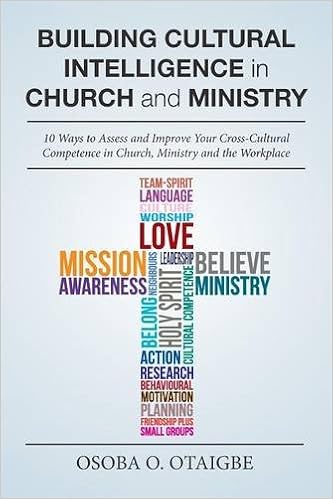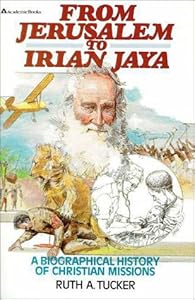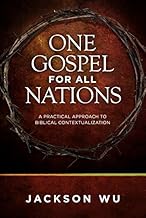A Very Incomplete List… but certainly ones worth taking a look at.
1. Building Cultural Intelligence in Church and Ministry. by Osoba  Otaigbe. Fairly short book, but does a really nice job of pointing out the importance of Cultural Intelligence… especially in ministry. Has plenty of stories and examples to bring the point home.
Otaigbe. Fairly short book, but does a really nice job of pointing out the importance of Cultural Intelligence… especially in ministry. Has plenty of stories and examples to bring the point home.
2. Missional Renaissance: Changing the Scorecard for the Church. by Reggie MacNeal. A church-centered view of missions. Discusses mission work (local, regional, and internation) from the perspective of missional churches.
3. When Charity Destroys Dignity: Overcoming Unhealthy Dependency in the Christian Movement. by Glenn J. Schwartz. While I think he takes the point a little too far at times (but maybe not), his book gives a valuable warning to the common American (and European and Korean) attitude regarding missions of “just send money”. Another great book that is related and, perhaps a bit more positive in the potential for effective ministry is When Helping Hurts: How to Alleviate Poverty Without Hurting the Poor… or Yourself, by Corbett, Fikkert, and Platt. Excellent read.
4. Bridging the Gap: Evangelism, Developent and Shalom. by Bruce Bradshaw. Great book on integrating missions work. Wholistic missions. (Sadly, I seem to have lost my copy… I must get another one.)
5. Incarnational Agents: A Guide to Developmental Ministry. by John R. Cheyne. Another great book on holistic missions. I found it annoying that he was complaining that some people spell ‘holistic’ as ‘wholistic.’ But if I make a big deal about it… I am falling into the same trap. It is, after all, a very good book. Another book that similarly focuses on holistic missions is The Hole in Our Gospel, by Richard Stearns. Both are highly recommended.
6. From Jerusalem to Irian Jaya. By Ruth Tucker.  A biography-based history of Christian missions. Very readable. Shows missionaries for who they were… willing but fallable workers for God. Does do a good job of bringing in women and majority world missionaries into the book. Doesn’t give much reference to missionaries from the Eastern church (but then again, almost no one from the West does). It is a somewhat old book. It could definitely benefit from an update. (One risk of biographical histories is that they can unwittingly support the “Great Man Theory of History.” I don’t believe that Tucker does this at all— rather the book puts a human face on history.
A biography-based history of Christian missions. Very readable. Shows missionaries for who they were… willing but fallable workers for God. Does do a good job of bringing in women and majority world missionaries into the book. Doesn’t give much reference to missionaries from the Eastern church (but then again, almost no one from the West does). It is a somewhat old book. It could definitely benefit from an update. (One risk of biographical histories is that they can unwittingly support the “Great Man Theory of History.” I don’t believe that Tucker does this at all— rather the book puts a human face on history.
7. Translating the Message: The Missionary Impact on Culture. by Lamin Sanneh. Heavy but wonderful book that shows the importance of the vernacular written word on Christian missions. Compares the Christian “norm” of translation in missions to the Islamic norm of diffusion.
8. Perspectives on the World Christian Movement. Edited: Hawthorne, Winter. While I disagree with a some of the underlying assumptions regarding missions in this book, there is no doubt that it is a “must-read” for Evangelicals who are seeking to be familiar with Christian missions. Frankly, I suppose I SHOULD disagree with some of it. That is why there is an “s” on the end of “Perspectives.”

9. Eternity in Their Hearts, by Don Richardson. Although the book gives the impression that God intentionally places redemptive analogies in each culture (something which I doubt), I commend the book (and its author) in recognizing the value of Redemptive Analogies, utilizing many historical examples.
10. “Readers Guide to Transforming Mission” by Stan Nussbaum. A streamlined and organized version of the book Transforming Mission by David Jacobus Bosch. The original book may be the source… but I love properly organized and compiled information in simplified form. The Reader’s Guide is definitely worth reading.
11. “Churches that Abuse” by Ronald Enroth. Written in 1992, but should be seen as a classic. Speaks of spiritual abuse and abuse of ecclesiastical power in many churches. This problem is too big to be ignored, and missionaries (as churchplanters) can be tempted to rule their church rather than lovingly guide and nurture. Even though the book is dated… the principles are not. It really should be read by all Christians. Happily, it can be read on line at CCEL.
12. “Mission of God: Unlocking the Bible’s Grand Narrative” by Christopher J. H. Wright. Admittedly, I don’t like long books… but here I will make an exception. It develops the concept that the Bible can and should be interpreted missionally… and sets a good foundation for a broader Missions Theology. Worth trudging through. Wright’s strength is the Old Testament, and he does a great job of bringing the OT into today’s missional theology (and missional hermeneutic). He does take a higher view of social ministry than many evangelicals… but I believe on that issue Wright is “in the right.”
13. “Models of Contextual Theology” by Stephen Bevans. I think it is a great book to look at when one seeks to contextualize theology. That is important for anyone involved in missions. And frankly, since all theology is contextual (whether done well or poorly), this is good for anyone who values theology. It does leave a fairly large hole in that it doesn’t really address criteria for determining if a contextual theology is good (orthodox) or bad (heterodox). Bevans, and others, do talk about this elsewhere. A. Scott Moreau’s book, “Contextualization in World Missions: Mapping and Assessing Evangelical Models” attempts to expand the model with focus on Evangelical Missions. I like some aspects of the book. However, I have gotten a bit tired of Evangelical writers slapping the “Evangelical” sticker on their writings (much like Pentecostal writers have been doing for awhile now). If it is worth reading, it doesn’t need a label that is, sadly, beginning to mean almost nothing.
14. “Encountering Theology of Missions” by Ott, Strauss, and Tennent. I don’t have a lot to say about this book. I find it a good overall look at Theology of Missions. I guess there is a side of me that likes the idea that a theology should have an overall model. I don’t think that “mainstream Evangelical” is a model. But perhaps I am wrong on this. It is broad-based in covering a broad range of topics, and addresses Biblical and Historical issues well. Wow. I feel like my review is half-hearted. Not true. I really recommend the book. When I come up with a better review, I will replace this one.
15. “Mission and Expansion of Christianity in the First Three Centuries” by Adolph Harnack is a triumph of a book. I still find it frustrating that research gives great focus on recent books and articles over older media. In some cases this is justified. But in some cases, not so much. For me, Pastoral Care is a topic in which new materials often are decidedly inferior, generally, to materials from 20-40 years ago. This can be true in Missions as well. This is a rather long book, but worth pushing through it. The positive side of this being a forgotten book is that it is available online for free in the form of pdf. Thus it is available to all.
16. “One Gospel for all Nations: A Practical Approach to Biblical Contextualization” by Jackson Wu. Really enjoyed this book, that seeks to look at contextualization of the gospel message in a way that takes culture seriously. Generally recommend other works by Wu as well.
17. “Missionary Methods, St. Paul’s or Ours: A Study of the Church in the Four Provinces,” by Roland Allen. I really love this classic book and recommend you read it. This is despite the fact that I really hate the title of the book. First, it is really about Principles, not Methods. Second, I think the principles probably are more from Barnabas than Paul. Third, if we should choose between St. Paul or Ours, the answer is pretty obvious that it should be ours (Paul did not live in our context of course). But ignoring the title, Allen makes a good case for correcting a lot of mission principles that have developed over the centuries. Allen suggests that application of many of the principles from the first century will lead to healthier 3-self missions. I do agree with that.
18. Philippine-based Missionary Biographies. I am not one to generally recommend biographies. What may inspire one person may mean nothing to another. However, here are three good ones from missionaries serving in the Philippines. “And the Word Came with Power” by Joanne Shetler. This speaks of her work with the Balangao people of Mountain Province. A strong read and inspirational. “In the Presence of my Enemies” by Grace Burnham. Well-known book about travails of Grace and Martin Burnham who were kidnapped by Abu Sayyaf. Definitely a must-read. “I Planted the Seed and Woody Squashed It” by Barry Phillips. Real stories drive points home better than fictitious stories, commonly. Add to that stories that would be hilarious if not for the fact that they are true, and you have a great collection of vignettes to learn from.

